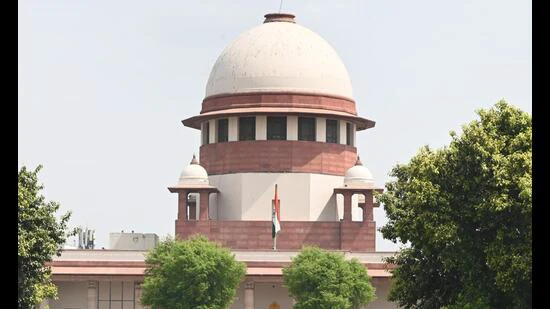The Union government on Friday told the Supreme Court that it wants Kerala nurse Nimisha Priya, who faces capital punishment in Yemen for the 2017 murder of a Yemeni national, to “come out safely,” and cautioned against any third-party interventions that could potentially jeopardise sensitive diplomatic efforts underway to secure her release.
Attorney general R Venkataramani told the court that parallel efforts, such as those by private individuals or organisations seeking to negotiate with the victim’s family, might prove “counter-productive” at this stage. “We do not want something counterproductive happening. We want this woman to come out safely,” Venkataramani told a bench of justices Vikram Nath and Sandeep Mehta after a petitioner organisation seeking relief for Priya asked the court for permission to travel to Yemen.
The court declined to grant such permission and instead advised the petitioner, Save Nimisha Priya International Action Council, to approach the government directly. It allowed the organisation to make a formal representation to the government, which, the bench ordered, “shall be considered on its own merits.” The matter will be taken up again on August 14.
The development came days after Yemeni authorities stayed the execution of Priya, scheduled for July 16, raising hopes for a possible reprieve. Talal Abdo Mahdi, brother of the murdered man, however, declared on Wednesday that the family remains firm in its demand for execution and is unwilling to consider any alternative.
Under Sharia law, as implemented in Yemen, a death row convict can be spared if the victim’s family agrees to diyat, a form of blood money, as compensation and waives its right to qisas, or retribution. Priya’s family and supporters hoped to negotiate such an arrangement.
The victim’s family has thus far refused to entertain any overtures, with Venkataramani telling the court earlier this week that the matter has become one of “honour” for them. “They say it is a question of honour and do not accept [the offer]. We do not know if it changes with more money. But as of now, standstill,” Venkataramani had said.
On July 14, Venkataramani told the court that India had exhausted all formal and backchannel diplomatic efforts. “There is a point till which the government of India can go. We have reached that,” he had said, noting that India does not maintain formal diplomatic relations with Yemen, where large parts of the country, including the capital Sanaa, are controlled by Houthi rebels. He had informed the court that India had even enlisted the help of a respected Islamic cleric to persuade Yemeni authorities to suspend the execution.
During the Friday hearing, the petitioner organisation, represented by senior advocate R Basant, expressed its gratitude to the government but emphasised the urgency of sending its members to Yemen to continue engaging with the murdered man’s family. “We need to go there… There is a revered Islamic cleric who intervened,” Basant said. Venkataramani reiterated that any uncoordinated action could have adverse consequences.
Priya, 38, a nurse from Kerala’s Palakkad, was convicted of the murder of her former business associate, Talal Abdo Mahdi. She reportedly partnered with him to open a clinic in Yemen in 2015, but escalating personal and financial tensions led to conflict.
According to the prosecution, Priya injected Mahdi with sedatives to retrieve her passport, which he had allegedly confiscated. The overdose resulted in his death. A trial court in Sanaa convicted Priya in 2020. Yemen’s Supreme Judicial Council in November 2023 upheld her death sentence. President Rashad al-Alimi approved the execution order in 2024.
Priya’s family has claimed that she suffered physical, financial, and emotional abuse at Mahdi’s hands, and that the murder was not premeditated but stemmed from desperation and entrapment. Her mother, Prema Kumari, a domestic worker from Kochi, has been camping in Sanaa for over a year, making repeated efforts to reach out to the victim’s family and appeal for clemency. In December 2023, the Delhi high court permitted her to travel to the war-torn country, which remains largely inaccessible due to ongoing conflict.
